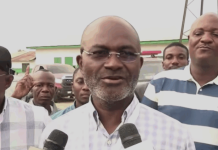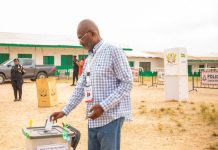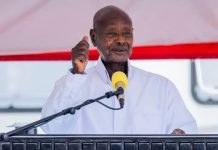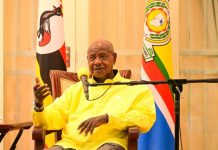Top Iraqi militia commander Abu Mahdi al-Muhandis, an adviser to Soleimani, was also killed in the attack, a militia spokesman said.
The high-profile assassinations are likely to be a massive blow to Iran, which has been locked in a long conflict with the United States that escalated sharply last week with an attack on the US embassy in Iraq by pro-Iranian militiamen following a US air raid on the Kataib Hezbollah militia, founded by Muhandis.
“At the direction of the President, the U.S. military has taken decisive defensive action to protect U.S. personnel abroad by killing Qassem Soleimani,” the Pentagon said in a statement.
“This strike was aimed at deterring future Iranian attack plans,” it added.
U.S. officials, speaking on the condition of anonymity, said that Soleimani had been killed in a drone strike. Iran’s Revolutionary Guards said he was killed in an attack by American helicopters.
Iranian Foreign Minister Mohammad Javad Zarif said Soleimani’s assassination would strengthen resistance against the United States and Israel in the region and the world, Iranian state television reported
“The brutality and stupidity of American terrorist forces in assassinating Commander Soleimani … will undoubtedly make the tree of resistance in the region and the world more prosperous,” Zarif said in a statement.
Iranian state television presenters wore black and broadcast footage of Soleimani peering through binoculars across a desert and greeting a soldier, and of Muhandis speaking to followers.
Iraqi paramilitary groups said on Friday that three rockets hit Baghdad International Airport, killing five members of Iraqi paramilitary groups and two “guests”.
The rockets landed near the air cargo terminal, burning two vehicles, killing and injuring several people.
Local militia commander Abu Muntathar al-Hussaini told Reuters:
“Haj Soleimani and Abu Mahdi al-Muhandis were riding in one vehicle when it was struck by two successive guided missiles launched from an American helicopter while they were on their way from the arrivals hall on the road that leads out of Baghdad Airport.”
He said the second vehicle was carrying bodyguards from the PMF and was hit by one rocket.
“The American criminals had detailed information on the convoy’s movements.”
Oil prices were up $3 on the news.
DRAMATIC ESCALATION
Soleimani’s killing marks a dramatic escalation in the regional “shadow war” between Iran and the US and its allies, principally Israel and Saudi Arabia, which could quickly ratchet up tit-for-tat attacks – all the way to the brink of all-out war.
The slain commander’s Quds Force, along with its stable of paramilitary proxies from Lebanon’s Hezbollah to the PMF in Iraq – battle-hardened militias armed with missiles – has ample means to launch a multi-barrelled response against its enemies.
In September, US officials blamed Iran for a devastating missiles and drones attack on oil installations of Saudi Aramco, the Saudi state energy giant and world’s largest oil exporter. The Trump administration did not respond, beyond heated rhetoric and threats.
But analysts say Iran is likely to respond forcefully to the targeting of Soleimani, who it has built into a legend as its influence has spread across the region in the wake of the US-led invasion of Iraq in 2003 and subsequent occupation
Soleimani, who has led the foreign arm of the Revolutionary Guards and has had a key role in fighting in Syria and Iraq, acquired celebrity status at home and abroad.
The United States and Iran’s regional foes Saudi Arabia and Israel have struggled to keep Iran’s influence in check.
His Quds Force, tasked with carrying out operations beyond Iran’s borders, shored up support for Syrian President Bashar al-Assad when he looked close to defeat in the civil war raging since 2011 and also helped militiamen defeat Islamic State in Iraq.
He became head of the Quds Force in 1998, a position in which he kept a low profile for years while he strengthened Iran’s ties with Hezbollah in Lebanon, Syria’s government and Shi’ite militia groups in Iraq.
Muhandis, who was killed with Soleimani, oversaw Iraq’s PMF, an umbrella grouping of paramilitary groups mostly consisting of Iran-backed Shi’ite militias that was formally integrated into Iraqi armed forces.
Kataib, which received battlefield training from Lebanon’s Hezbollah, has long targeted U.S. forces and was one of the earliest groups to dispatch fighters to Syria to support Assad.
In 2009, Washington declared Kataib Hezbollah a foreign terrorist organization, saying it threatened stability in Iraq and declared Muhandis a terrorist. In 2007, a Kuwaiti court sentenced him to death in absentia for his involvement in the 1983 U.S. and French embassy bombings in Kuwait.
Reporting by Ahmed Rasheed and Ahmed Aboulenein; Additional reporting by Idrees Ali in Washington; Writing Samia Nakhoul; Editing by Peter Cooney, Robert Birsel.

























